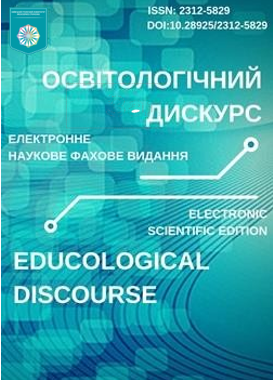Сritical Thinking Development in Foreign Language Classes
DOI:
https://doi.org/10.28925/2312-5829.2024.113Keywords:
critical thinking, communication, strategies, judgments, reasons, evaluating, making decisions, solving problemAbstract
The article deals with theoretical and practical aspects of critical thinking development in foreign language classes. Some techniques of critical thinking formation are analyzed. The strategies that can be applied to improve one’s critical thinking (making a conscious effort to focus on the challenge, learning to ask critical questions, practice to support the ideas with verifiable evidence, etc.) are substantiated.
The main facts about the historical path of critical thinking are presented starting with the ideas of Socrates, Plato and Aristotle followed by representatives of the Renaissance. Modern publications of philologists and scientists John Hughes, Paul Dummett (2019); Pagan Castalo, Christen Li (2017); Smith, G., & Peloghitis, J. (2020) and others are aimed to teaching students to think critically and communicate effectively. Some researchers have established a connection between critical thinking and creativity.
To be effective in critical thinking it is analyzed how to structure the entire learning process. The article discusses important points of critical thinking efficiency, i.e., making a deliberate effort to single out the ideas contained in the piece of information, weighing the ideas to see what their correlation is, finding out the relevance and importance of each idea, creating one’s own arguments.
Some practical tasks used for mastering critical thinking at English classes are presented, namely while training reading, listening, writing and speaking skills. The article also describes the signs that demonstrate students have developed the skills of critical thinking. It’s also mentioned that in constructing assessments of critical thinking, educators should use open-ended tasks, real-world or “authentic” problem contexts that require students to go beyond restating previously learned information.
Downloads
References
Bailin, S. (2002). Critical thinking and science education. Science & Education, 11(4), 361–375.
Caroline Krantz, Julie Norton. Navigate/Coursebook (B1 Pre-intermediate). – Oxford University Press, 2015. 199 p.
Christen Li (2017). 21st Century Communication: Listening, Speaking and Critical Thinking. National Geographic learning. Cengage Learning. 184 p.
Fatmawati, A., Zubaidah, S. & Sutopo Mahanal (2019). Critical thinking, creative thinking, and learning achievement: How they are related. Journal of Physics: Conference Series, IOP Publishing, 1417 (1). 127 p.
John Hughes, & Paul Dummett (2019). Critical Thinking in ELT: A Working Model for the Classroom. National Geographic. 158 p.
Paul, R. W. & Elder, L. (2006). Critical thinking: The nature of critical and creative thought. Journal of Developmental Education, 30(2), 34–35.
Simon Bradley, & Nicole Price (2016). Proven Strategies To Improve Decision Making Skills, Increase Intuition And Think Smarter! CreateSpace Independent Publishing Platform. 106 p.
Smith, G., & Peloghitis, J. (2020). Critical thinking and debiasing: Experimentation in academic writing course. In P. Clements In P. Clements, A. Krause & R. Gentry (Eds.), Teacher efficacy, learner agency (pp. 443–450). Tokyo: JALT. https://doi.org/10.37546/ JALTPCP2019-51
Terno, C., O. (2009). Krytychne myslennia — suchasnyi vymir suspilstvoznavchoi osvity. Zaporizhzhia: Prosvita. 268 s.
Tiahlo, A. V. (1999). Krytychne myslennia, problema svitovoi osvity XXI stolittia. Kharkiv: Instytut vnutrishnikh sprav. 285 s.
Willingham, D. T. (2007). Critical thinking: Why is it so hard to teach? American Educator, 8–19.
Published
How to Cite
Issue
Section
License
Copyright (c) 2024 Educological discourse

This work is licensed under a Creative Commons Attribution-NonCommercial 4.0 International License.
Автори зберігають за собою всі авторські права та одночасно надають журналу право першої публікації на умовах лізенції Creative Commons Attribution-NonCommercial-ShareAlike 3.0 Unported License, що дозволяє розповсюджувати даний матеріал із зазначенням авторства та первинної публікації в даному журналі.





















